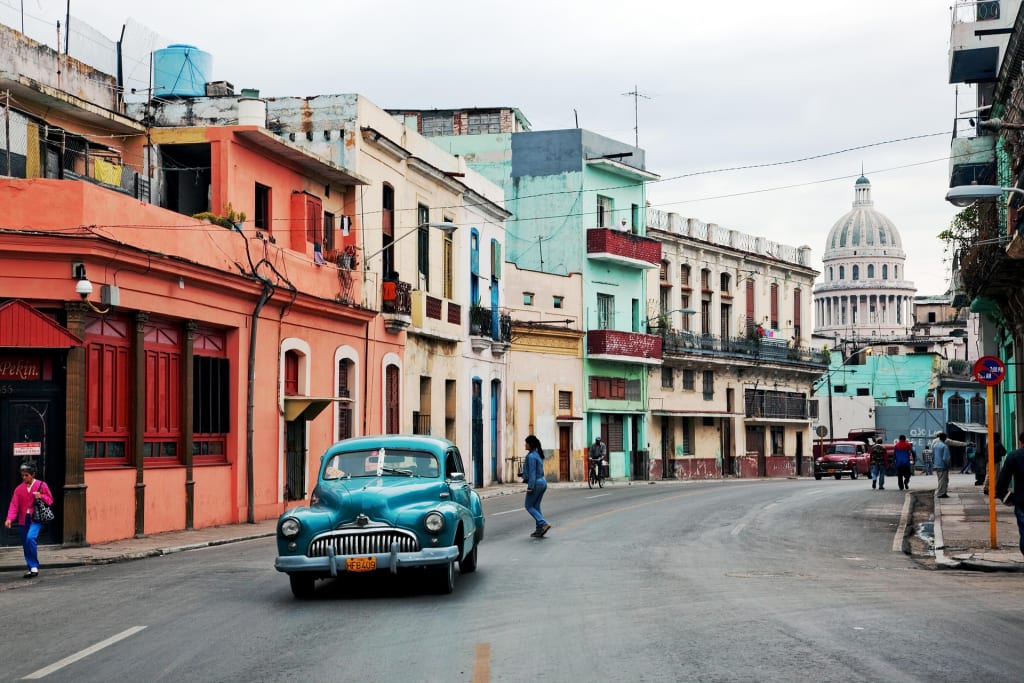Gordiano Lupi, "Yoani Sanchez, in attesa della primavera"
About the Cuban dissident Yoani Sanchez

For those used to living in a free country without even realizing it, reading “Waiting for Spring”, the book that Gordiano Lupi dedicates to Cuban blogger Yoani Sànchez, is like taking a punch in the stomach, a punch that does not withdraw after the Sag, but it sticks to give you a taste of gall and bile in your mouth. But let’s go in order.
Gordiano Lupi once was the official translator of Yoani Sànchez, he has been following her blog for years and has been in charge of relations with the dissident through continuous contacts. Yoani is a Cuban philologist who, after a past as an ordinary little Castrist, begins to ask herself questions. She is young, restless, intelligent. Doubt, contrast, “heresy” grows in her. Because this is how the Castro regime of Fidel before, and then of his brother Raùl, interpret Yoani’s desire for freedom.
Yoani is forced to suffer the violence of a starving and liberticidal regime, of a blind and brutal authority, and she suffers for Cuba, the beloved island, the wounded homeland, where dengue is endemic, where food rationing cards do not grant enough calories for subsistence and yet, once abolished, are regretted. Yoani studies in a “country school”, a sort of lager where she suffers abuse, hunger and lice, she immerses herself in literature to escape from a present she does not like, she dreams of traveling. It will be precisely this, her frustrated desire to travel, even more than the two arrests suffered, that constitutes the real deprivation of liberty, the most painful. For those who know what it feels like to get on a plane with emotion in your heart, this kind of island arrests are a torment.
“I dream of being able to live on an island where you no longer have to ask for permission to enter and exit. I am under the illusion that in the near future I will live in a normal country, which will not prevent a trip abroad for political reasons. For the moment I can only use Twitter — my only weapon — and shout out loud: Internet and freedom of movement for Cubans! “
Yoani does not understand why “everything is forbidden” in her country: you cannot go abroad, you cannot read certain books or attend certain shows, you cannot freely express your opinion, you cannot access the internet for a long time, even, you can’t even own a computer. Disgust suffocates her, anguish oppresses her. She sees all the dissidents, who go on hunger strike and do not come out alive, die one after the other. The choice is to go out suffocated by the prohibitions or to rebel. Then she enters a hotel with an internet connection and, clandestinely, writes the first post of Generaciòn Y, the blog that — although obscured by the authorities from 2008 to 2011 — will make her famous all over the world, will make her one of the most influential people in the planet, nominated for the Nobel Peace Prize in 2012, capable of speaking even with Barack Obama and for this accused of imperialism by the pro-Castro.
The blog, translated for La Stampa by Gordiano Lupi, has been active for years and, in this time, the fragile Cuban — very thin, with a spiritual and quiet beauty — is transformed into a reckless activist, more and more self-aware, more and more a symbol, beacon and light for all Cubans and all dissidents in the world, like Aung San Suu Kyi — but also increasingly scared, amidst blackouts, defamations, arrests, threats and beatings.
She is afraid above all because she is the mother of a boy in whose eyes she reads the same longing for freedom, the same unanswered questions as she had when she was little. She loves independence of spirit in her son and, at the same time, fears it. She feels nauseous every time, since he was a child, he is forced to compromise, to keep quiet for convenience and to live mutely, in order to “not get into trouble”. She does not want the fate that befell her for him, she wants Teo to grow up in an emancipated, democratic Cuba, where anyone can express dissent, where elections are not a farce, where culture and knowledge circulate unhindered, where it is allowed to pack a suitcase and set out to discover the world, where they don’t have to work on Christmas Eve, where everyone is free to pray to his God and decide whether to accept or reject the Western model. Instead Yoani, her husband Rinaldo and her son Teo, live in a country where there are no political prisoners but only “common criminals”: eleven million common criminals, just because they are thinking heads.
“I don’t really know freedom”, she tells us — and how poignant it is to not even understand what we lack, not even the object of desire — “but for me it is like a goal, a goal to pursue. I think that freedom means living in a country where it is possible to stop in a corner and shout: There is no freedom here! Freedom is a space where even more freedom can be achieved. Freedom begins within ourselves, the day you get up and say: I don’t want to go on like this. I don’t want to wear a mask anymore. I don’t want to let them steal my space of opinion, of free movement.“
Yoani knows that her life is a coin tossed, she knows that, if a journalist can be fired, ghettoized, silenced, it is more difficult to stop a blogger because the network has its viral ways and widespread expansion. Yoani knows that to stop a blogger you have to kill him. Her guarantee is the visibility, the number of readers, the number of followers, the number of awards received. This is why it has become almost an obsession for those who follow and translate her. Talking about her to the world means not only spreading her ideas and her dream of freedom and democracy, but also keeping her alive, saving her from prison, from the mud machine, from physical elimination.
In her anti-government blog Yoani says terrible and harsh things but she says them calmly, with kindness, without excess, always looking at the other side of the coin, always looking for confirmation of rumors, suspicions. And, when the pro Castro insults her in an airport — the day she is finally allowed to leave the country — she is happy because she understands that she is in a place where there is freedom of expression.
What she herself says about Aung San Suu Kyi applies to her posts:
“No one like her has been able to describe the horror with sweetness, without her cry taking hold of her style and her rancor rising in her eyes.”
Her messages are written in a literary style, not only about politics and society, but also about everyday life. We imagine her, pale and absorbed, between hanging clothes and postponed chores, answering e-mails and phone calls, with, in the next room, a son, dissident yes, but also hungry and waiting for lunch. We relive her childhood, then puberty in the country school, the diseases contracted between hunger and filth, conjunctivitis, the need to get a shampoo, the hair shaved bald for fear of parasites, the years of university, the struggles alongside the Damas de Blanco, the protests in the square, the nights in prison (of which, out of modesty, she tells little, only the humiliation of the searches “under the skirts”) but also the desire — she atheist — to see a nativity scene, to celebrate Christmas, to pack a suitcase just to leave it in a corner, unused.
All this hurts us inside, it pains us. Reading Generaciòn Y you are passionate and painful together.
Gordiano Lupi renders Sànchez’s incisive style well, more as a writer than a simple blogger, and is good at summarizing the years of Generaciòn Y’s life, making them compelling like a novel, even if proceeding in jerks, in leaps back and forth in time, as it is in the style of the Piombino writer, translator and publisher.
This is why we are now all here with her, with Yoani, waiting for a spring that may be delayed, which will also be studded with suffering, inconvenience and conflict, but, we are sure, sooner or later will arrive in Cuba too.
"Democracy will come twenty-four hours after all of us Cubans have claimed it as our specific right“.
About the Creator
Patrizia Poli
Patrizia Poli was born in Livorno in 1961. Writer of fiction and blogger, she published seven novels.






Comments
There are no comments for this story
Be the first to respond and start the conversation.